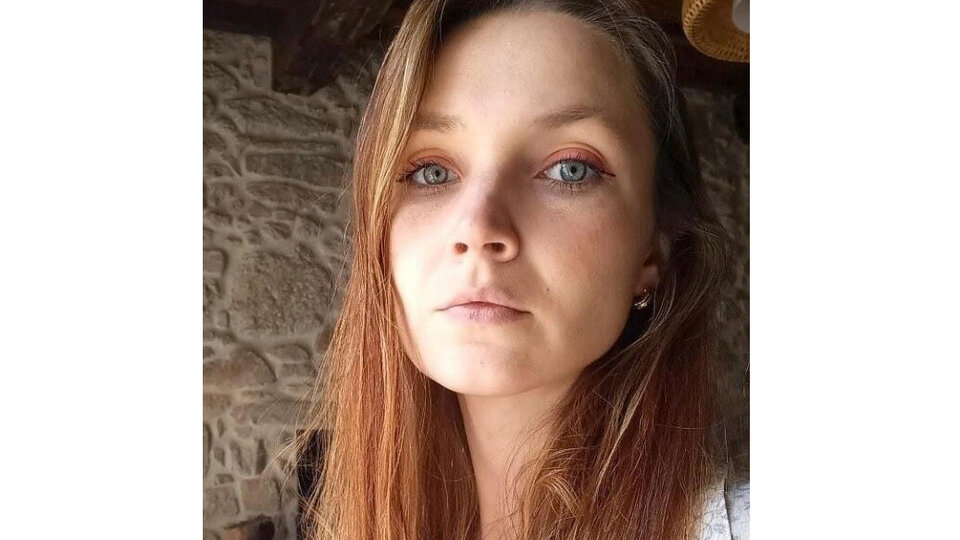
“I didn’t want to be born in autumn in a radioactive country. But the doctor cut me with a scalpel, and I touched the sadness with my feet, while I tried to hold my mother’s insides with my hands. And so it begins. Firefly, Debut novel by Belarusian-Argentine poet Natalia Litvinova With this he won the second edition unanimously Lumen Novel Award 2024, 30,000 euros and the publication of the hit book hitting bookstores in September. The author was born in Komal, southeast Belarus, in 1986, five months after the explosion of the Chernobyl nuclear power plant, during a time of chaos, poverty and suffering. Litvinova’s family moved to Buenos Aires in 1996 in search of a better future.
“The first years of my life coincided with the recession and the end of the Soviet Union,” he says. firefly, In the words of this edition’s jury, “a luminous and radiant novel”. “Soap, bras, toilet paper, oil, diapers, milk disappeared from warehouses. Liquor and preservation shelves were filled with cabbages and markets were turned into desolate orchards. Life became a long waiting line; Each family was given coupons each month for items they could buy, the most valuable being cigarettes and alcohol. Vodka was a precious commodity and no one in our family drank it. The mother exchanged vodka coupons for oil or butter coupons with the neighbors, and thus went from being anonymous to neighborhood celebrity: they called her ‘the woman with the children who didn’t drink’, ‘the one who brewed the coupons’ and ‘the patron’. Saint of Drunkards’.
Litvinova arrived in Buenos Aires on September 9, 1996. He turned ten the next day in Argentina. As he says in the novel, he first fell in love with Spanish when he read the poetry of Federico García Lorca at the age of fourteen. “This is the language I live in and the language I love. I like simplicity in life and writing, I don’t like writing in Russian, it’s not me. If I have to return to Belarus – which will not happen – I will not be able to live in another language, “admitted the poet and teacher who defined Slavic literature as “literature without hope”. At the age of twenty he attended the workshop of the Argentine poet Javier Calarza (1968-2022), where he wrote his first collection of poems. wrote meadow (2010), and with whom he wrote the book Prose bodies (2014) published poetry books All foreign (2013), next life (2016), Braided basket (2018), Nostalgia is a burning brand (2020) and Tsonga, hands of gold (2022) In 2016, together with Tom Maver, he founded the Lanten publishing house, which specializes in translating classic and contemporary Russian poetry.
In a press conference with journalists from Latin America and Spain, he promised that the “amniotic fluid”, as he defined it, could not leave the poem. “Poetry taught me the beauty of balance,” said another Argentinian succeeding Lumen Prize winner: Leticia Martin, who received the same recognition in 2023 with a novel. Vladimir. Litvinova’s grandmother was abducted by the Nazis in World War II, and when she returned to Belarus, she had to endure the rejection of men in her community who considered her a spy, a traitor. “I’m obsessed with Chernobyl; There was a time when they wanted to silence this disaster as if there was no radiation.The author agreed and said that “many novels” could be written about the meaning of the 1986 nuclear power plant explosion.
firefly, Presented under the title The woman with steel hands And under the pseudonym Tarina, she was chosen by a jury of writers Ángeles González-Cinde, Luna Miguel and Clara Obligado, literary director of the Rafael Alberti bookstore (Madrid), Lola Larumbe and the Argentinian writer María Fez.. The jury highlighted Litvinova’s “dazzling and moving voice, with a quality of hard simplicity”. “In the tradition of the best Russian literature, he moves organically from reality to myth, and knows how to use humor and irony to tell a story we’ve never read before. War and emigration, life in Belarus (the ‘breaking country’) set against the memories of childhood marked by the Chernobyl disaster and women’s Resistance is also described.”
In this “tender and powerful, uprooted and memory” debut, anticipated by Lumen Publishing to be published in September, Litvinova “recovers the oral history of the women of her family in an inhospitable world that seems like history. The end is coming, and identity, family relationships, and personal experience in a Memoir Full of poetry and sincerity, it is a reckoning with a past marked by migration and the need to survive in a disbanded world.
History of his family and exile Firefly, a novel that had been in his head for years and in which the author’s mother plays a central role. As he could not speak, he was asked to write some notebooks where he narrated his experiences in Komal. “I was interested in searching for those broken memories, traumas and people’s resistance,” said the award-winning poet. When that silence is broken, horror and beauty emerge.”

“Introvert. Thinker. Problem solver. Evil beer specialist. Prone to fits of apathy. Social media expert. Award-winning food fanatic.”





More Stories
Two influencers drown after refusing to wear life jackets: “ruining selfies”
Uruguay 2024 election results: who won and when is the second round | Waiting to know whether there will be a runoff or not
Uruguay: Lacalle Pou leaves with his figure on the slopes | The Marcet and Asteziano scandals hit the right-wing ruler